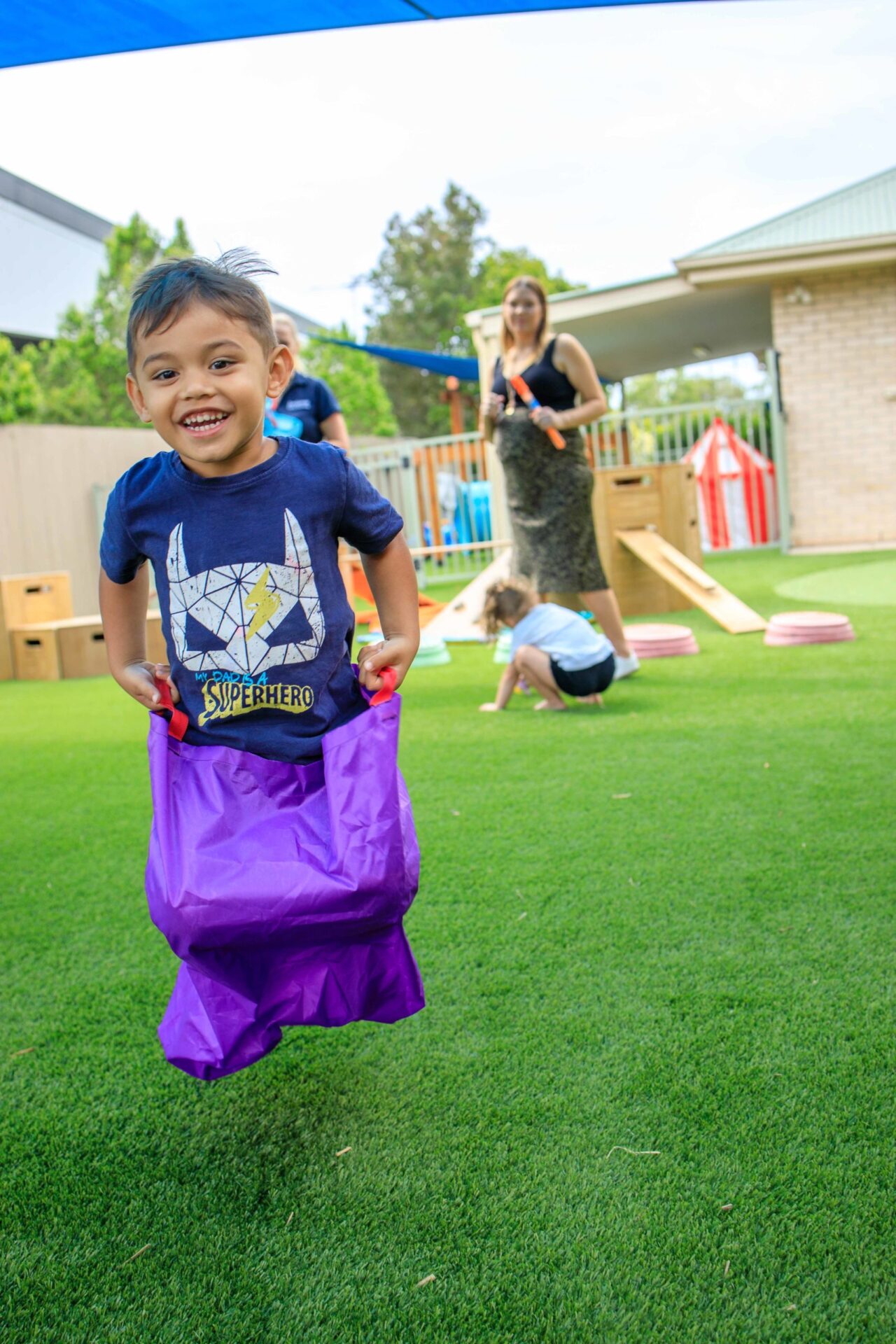Play – the work of children! When you hear someone say ‘play’ what do you think of? A group of children kicking a soccer ball around, children building with blocks? There are so many different types of play that young children engage in. Their play varies depending on their age, developmental stage and environment.
Play is so important because it is the way that children learn. When playing, children develop:
- Social skills and the ability to invite others to play.
- Planning skills about what game they are going to play.
- Fine motor skills when making props and costumes.
- Gross motor skills when moving items.
- Pre-literacy and pre-numeracy skills (learn the purpose of reading, writing, and numbers).
- Literacy skills by writing signs (or other texts relevant to their game), and looking at different letters required to write a word.
- Problem-solving skills when something goes wrong.
- Resilience when they have to rebuild.
- Conflict resolution skills when things don’t work out.
When children play with the support of a teacher, parent or adult they learn to:
- Hear each other’s ideas and perspectives.
- Review their thinking to incorporate the thinking, experiences, and ideas of others.
- Articulate their thinking in such a way that peers understand their thinking and knowledge
- Verbalise ways of approaching a task that allows all parties to be engaged.
- Organise their thinking and forward planning to accommodate other perspectives.
Today we are going to focus on a few of the key types of play we observe in young children and how these assist their development.
Exploratory Play
This is one of the first types of play that young babies engage in. When I take the time to slow down and really watch a baby their interest and attention span is amazing. Babies will be captivated by everyday objects: looking at them, reaching out, touching and mouthing as they explore. When my daughter was younger she loved looking at the ceiling fan! Now as a one-year-old her favourite exploratory play is emptying the Tupperware cupboard. During exploratory play, children are entirely self-directed and develop their attention span, concentration and persistence.
Socio-Dramatic or Pretend Play
I have observed this to be one of the favourite types of play! Playing ‘mums and dads’, ‘families’, ‘babies’, ‘doctors’, ‘shopping’, ‘cafes’ or ‘going to the beach’ is the way that young children process what is happening in the world around them. Children spend lots of time negotiating roles (“I want to be the baby, I want to be the grandma!”) and setting up their play. This gives them the time and space to work on friendships and social skills as well as exploring other roles (such as a parent) through pretend play. If you listen carefully you might hear some of the things you say repeated!
Construction or Manipulative Play
Another very popular type of play. Building with blocks, Lego, magnetic tiles, marble run, Mobilo and so much more. This play varies with the age and development of a child. My daughter loves to help build a tower with 3 or 4 blocks and then knock it down! As children get older they dive deeper into construction and create the most amazing building or worlds with blocks and other manipulatives. This is great for their planning skills, visual-spatial development, and fine motor skills.
Physical Play
Swings, tag, sandpit, water, digging, jumping, climbing and running. We can’t expect children to sit and engage in fine motor tasks like writing until they have developed the necessary muscles through lots of whole-body movements outside. I love exploring different parks and finding ones with great challenges. Even better if there is a creek or some climbing trees nearby.
Games with Rules
This is often what we think of when we say “Go and play”. Board games, sports, and group games all have explicit and understood rules for children and adults to follow. This type of play is great for developing social skills, turn-taking, and sharing. I also love giving children the opportunity to make their own rules. Try providing pieces from a board game and see what evolves!
I hope that you will watch your children and see what sort of play they are engaging in. Encourage them and provide opportunities for all types of play.
Check out the Encourage Play Blog for a more in-depth look at different types of play and a great free poster download.









